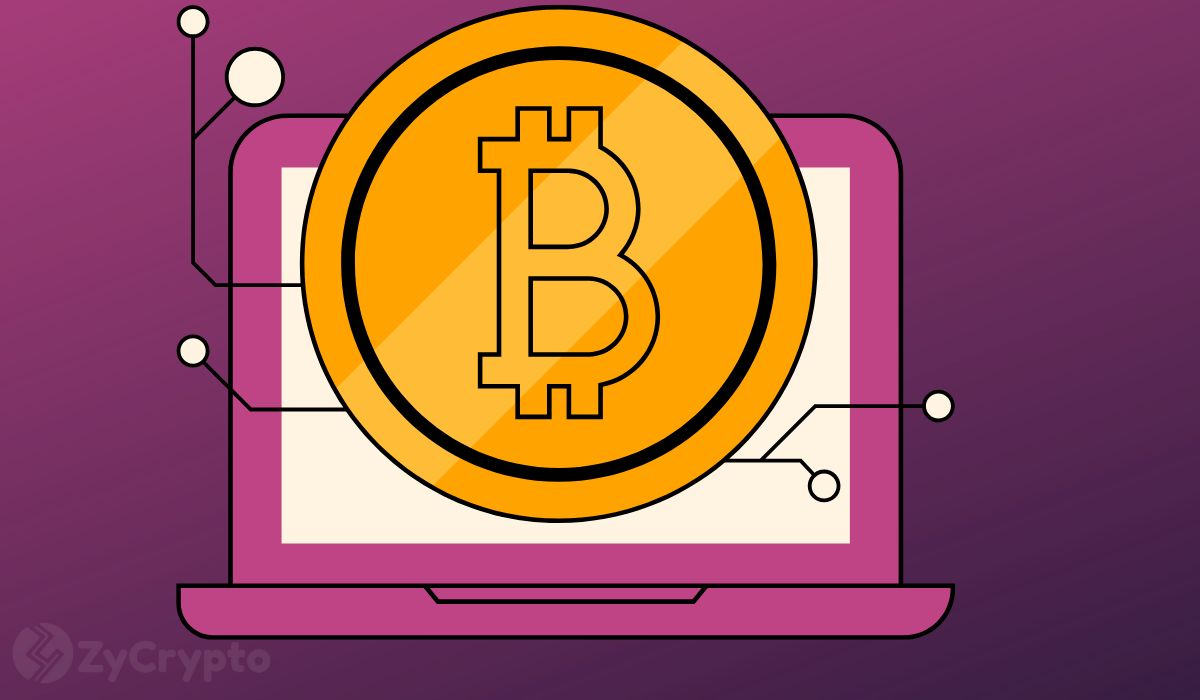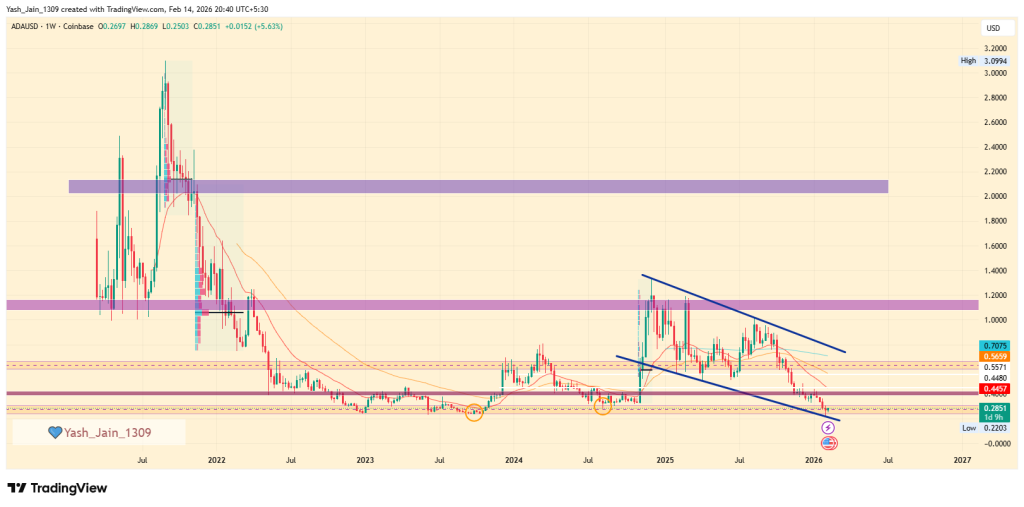Security Best Practises for Cryptocurrency in Cardano and DeFi
Table of Contents: Protecting Your Digital Assets / Mitigating Smart Contract Risks / Staying Alert to Phishing and Scams / Embracing Decentralized Identity Solutions / Crypto Wallet Security measures / Seed phrase protection / TLDR Conclusion

Decentralized Finance (DeFi) has revolutionized the financial landscape, empowering individuals with unprecedented access to financial services and opportunities. As more users embrace the potential of DeFi platforms, it is important to think about security. While DeFi offers exciting prospects for yield generation, lending, and decentralized trading, we must navigate the terrain with caution and prioritize its security measures. In this blog, we will highlight some of the most important areas to pay attention to.
Protecting Your Digital Assets
In the realm of DeFi, users are in full control of their digital assets, holding the keys to their financial sovereignty. However, this control comes with great responsibility. As you engage with DeFi services, safeguarding your digital assets becomes essential. Robust security practices, such as utilizing secure wallets, employing strong passwords, and enabling two-factor authentication, are vital to prevent unauthorized access and potential loss of funds.
By taking these precautions, you fortify your defenses and ensure the safety of your assets in the ever-evolving digital landscape.
💡 Utilize Secure Wallets: Choose reputable and secure wallets to store your digital assets. Opt for hardware wallets or well-established software wallets with strong encryption and security features. On WingRiders you have the following options:

💡 Strong Passwords: Create strong, unique passwords for your DeFi accounts and wallets. Use a combination of uppercase and lowercase letters, numbers, and symbols. Avoid using easily guessable passwords and consider using a password manager for added convenience and security.
💡 Two-Factor Authentication (2FA): Enable 2FA wherever possible. This adds an extra layer of security by requiring a secondary verification method, such as a unique code generated on your smartphone, in addition to your password.
💡 Regularly Update Software: Keep your wallets and DeFi applications up to date with the latest software versions. Developers often release security patches and updates to address vulnerabilities, so staying updated is crucial for maintaining the integrity of your digital assets.
Mitigating Smart Contract Risks
Smart contracts, the cornerstone of DeFi applications, automate financial transactions and agreements. While they bring efficiency and transparency, they also introduce unique risks. Vulnerabilities within smart contracts can be exploited by malicious actors, leading to significant financial consequences. It is crucial to conduct thorough due diligence before engaging with any DeFi project, reviewing audits and security assessments to assess the reliability and robustness of the underlying smart contracts. By prioritizing projects with reputable security practices and engaging with audited protocols, you minimize the risk of falling victim to potential vulnerabilities.
💡 Research and Due Diligence: Before engaging with any DeFi project, thoroughly research and review the smart contracts and project audits. Look for projects that have undergone professional security assessments and have a proven track record of reliability and transparency.
💡 Understand Contract Functionality: Take the time to understand the underlying smart contract’s functionality and risks associated with it. Read the code documentation, whitepapers, and project documentation to gain insights into how the contract operates and any potential risks.
💡 Diversify Investments: Avoid putting all your funds into a single DeFi project. Diversify your investments across multiple platforms and even Blockchains to spread the risk. This approach helps mitigate the impact of potential vulnerabilities in a single smart contract.
Staying Alert to Phishing and Scams
As DeFi gains popularity, so does the attention of nefarious entities seeking to exploit unsuspecting users. Phishing attempts, fraudulent websites, and scams pose significant threats to the security of DeFi participants. Vigilance is key. Exercise caution when interacting with DeFi platforms and double-check website URLs, ensuring they are legitimate and secure. Be wary of unsolicited requests for personal information or access to your wallet. By maintaining a sceptical mindset and staying informed about common phishing tactics, you can protect yourself from falling prey to fraudulent schemes.
Note: WingRiders will never ask you for private keys or passwords anywhere online or offline.
💡 Verify Website URLs: Always double-check the website URLs of DeFi platforms you visit. Ensure they are correct and secure, using HTTPS. Avoid clicking on suspicious links or visiting websites shared through untrusted sources.
💡 Be Wary of Unsolicited Requests: Be cautious of unsolicited messages, emails, or social media posts requesting personal information, wallet access, or private keys. Legitimate DeFi platforms will not ask for such details through unsolicited channels.
💡 Keep Software Updated: Regularly update your web browsers, antivirus software, and operating systems to benefit from the latest security patches. Outdated software can make your system more vulnerable to phishing attempts and scams.
Embracing Decentralized Identity Solutions
In the world of DeFi, managing and protecting your personal identity is of utmost importance. Traditional centralized systems store sensitive user information, making them lucrative targets for hackers. Embracing decentralized identity solutions, such as self-sovereign identity (SSI) frameworks and decentralized identifiers (DIDs), enables users to maintain control over their personal data. By leveraging these innovative solutions, you can mitigate the risks associated with centralized data breaches and enhance your overall security posture within the DeFi ecosystem.
💡 Self-Sovereign Identity (SSI): Explore self-sovereign identity frameworks that give you control over your personal data. Research and consider utilizing decentralized identity solutions that utilize blockchain technology to provide secure and private identity management.
💡 Protect Personal Information: Be cautious about sharing sensitive personal information, especially on centralized platforms. Minimize the exposure of personal data whenever possible and consider using pseudonyms or privacy-focused accounts when interacting with DeFi platforms.
💡 Educate Yourself: Stay informed about the latest advancements in decentralized identity and privacy solutions. Understand the benefits and potential risks associated with different identity management approaches to make informed decisions about protecting your personal information.
Crypto Wallet Security measures
💡 Offline Storage (Cold Wallets): Consider using offline storage solutions, also known as cold wallets or hardware wallets, to store your digital assets securely. These wallets keep your private keys offline, minimizing the risk of online attacks.
💡 Backup Your Wallet: Regularly backup your wallet’s private keys or seed phrases in a secure location. Store backups offline, such as on encrypted external hard drives or paper wallets. This ensures you can recover your wallet if your device is lost, stolen, or damaged.
💡 Multi-Signature Wallets: Utilize multi-signature wallets, also known as multisig wallets, which require multiple signatures from different devices or individuals to authorize transactions. This adds an extra layer of security, as an attacker would need access to multiple devices or people to initiate a transaction.
💡 Keep Software Updated: Ensure your wallet software is up to date with the latest version. Wallet developers often release updates to address security vulnerabilities and improve overall functionality. Regularly check for updates and apply them promptly.
💡 Verify Wallet Authenticity: Be cautious when downloading wallet software or apps. Stick to official sources, such as the wallet developer’s website or reputable app stores. Verify the wallet’s authenticity by checking reviews, community feedback, and the reputation of the wallet provider.
💡 Use Secure Networks: When accessing your wallet or initiating transactions, ensure you’re connected to secure and trusted networks. Avoid using public or unsecured Wi-Fi networks, as they may be susceptible to eavesdropping and other attacks.
💡 Be Cautious of Phishing Attempts: Beware of phishing attempts that aim to trick you into revealing your wallet credentials. Double-check website URLs, avoid clicking on suspicious links, and independently verify the authenticity of any requests for sensitive information.
💡 Enable Biometric or Two-Factor Authentication: If your wallet supports biometric authentication, such as fingerprint or face recognition, enable this feature for an additional layer of security. Additionally, consider using two-factor authentication (2FA) wherever possible to strengthen access control.
💡 Be Mindful of Third-Party Integrations: Exercise caution when granting permissions or interacting with third-party services that integrate with your wallet. Only use well-established and trusted services, and review the permissions requested by these integrations.
💡 Regularly Monitor Your Wallet: Keep an eye on your wallet’s transaction history and balances. Regularly review your wallet activity to identify any unauthorized transactions or suspicious activity. Promptly report any concerns to your wallet provider.
Remember, wallet security is a shared responsibility between the wallet provider and the user. Stay informed about the latest security practices, maintain good digital hygiene, and exercise caution to protect your digital assets effectively.
Seed phrase protection
Securing your seed phrase is crucial for the safety of your wallet and digital assets. Here are some best practices to follow:
💡 Write it Down: Write your seed phrase on a piece of paper or a durable material. Avoid digital storage as it may be vulnerable to hacking or accidental deletion. Use a pen or permanent marker and ensure the writing is clear and legible.
💡 Store in Multiple Secure Locations: Make multiple copies of the seed phrase and store them in different secure locations. This provides redundancy and protection against loss or damage. Consider storing copies in a fireproof safe, safety deposit box, or with trusted individuals.
💡 Use a Secure Physical Storage: Use a dedicated seed phrase storage device, such as a metal cryptosteel, which is resistant to fire, water, and physical damage. This adds an extra layer of protection against potential hazards.
💡 Avoid Digital Storage: Refrain from storing the seed phrase digitally, whether as a screenshot, text file, or in cloud storage. Digital devices are susceptible to malware, hacking, and data breaches, compromising the security of your seed phrase.
💡 Keep it Offline: Ensure your seed phrase is stored offline at all times. Avoid taking pictures, scanning, or uploading it to online platforms. By keeping it offline, you minimize the risk of unauthorized access or exposure.
💡 Beware of Phishing Attempts: Be cautious of phishing attempts that aim to trick you into revealing your seed phrase. Legitimate wallet providers will never ask for your seed phrase. Always enter your seed phrase directly into your wallet and never share it with anyone.
💡 Memorization is Risky: While memorizing your seed phrase may seem convenient, it also carries a risk of forgetting or mixing up words. It’s generally best to rely on written copies rather than memory alone.
💡 Test Your Backup: Before relying on your written seed phrase, perform a test restoration on an offline wallet or recovery tool. This ensures that you have accurately written down the seed phrase and can successfully restore your wallet if needed.
💡 Be Discreet: Keep your seed phrase confidential and avoid discussing it or its location openly or in public spaces. Sharing information about your seed phrase increases the risk of it falling into the wrong hands.
💡 Review and Update: Periodically review the condition and accessibility of your seed phrase backups. If any changes are made, such as generating a new seed phrase, ensure the old copies are securely destroyed.
Remember, the security of your seed phrase is paramount. Treat it with the same level of importance as you would treat physical cash or valuable possessions. By following these best practices, you can significantly reduce the risk of unauthorized access or loss of your digital assets.
TLDR Conclusion
As DeFi continues to redefine finance, security remains a paramount concern for users venturing into this decentralized realm. By prioritizing robust security practices, conducting thorough research, and staying vigilant against potential threats, you can embark on your DeFi journey with confidence. Remember, the power of DeFi lies not only in its financial opportunities but also in the double edged sword ability of directly controlling the protection and security of your assets, ensuring a resilient and prosperous future within the decentralized financial landscape.
Delegate Your Voting Power to FEED DRep in Cardano Governance.
DRep ID: drep12ukt4ctzmtf6l5rj76cddgf3dvuy0lfz7uky08jfvgr9ugaapz4 | We are driven to register as a DRep by our deep dedication to the Cardano ecosystem and our aspiration to take an active role in its development, ensuring that its progress stays true to the principles of decentralization, security, and community empowerment.DELEGATE VOTING POWER!








